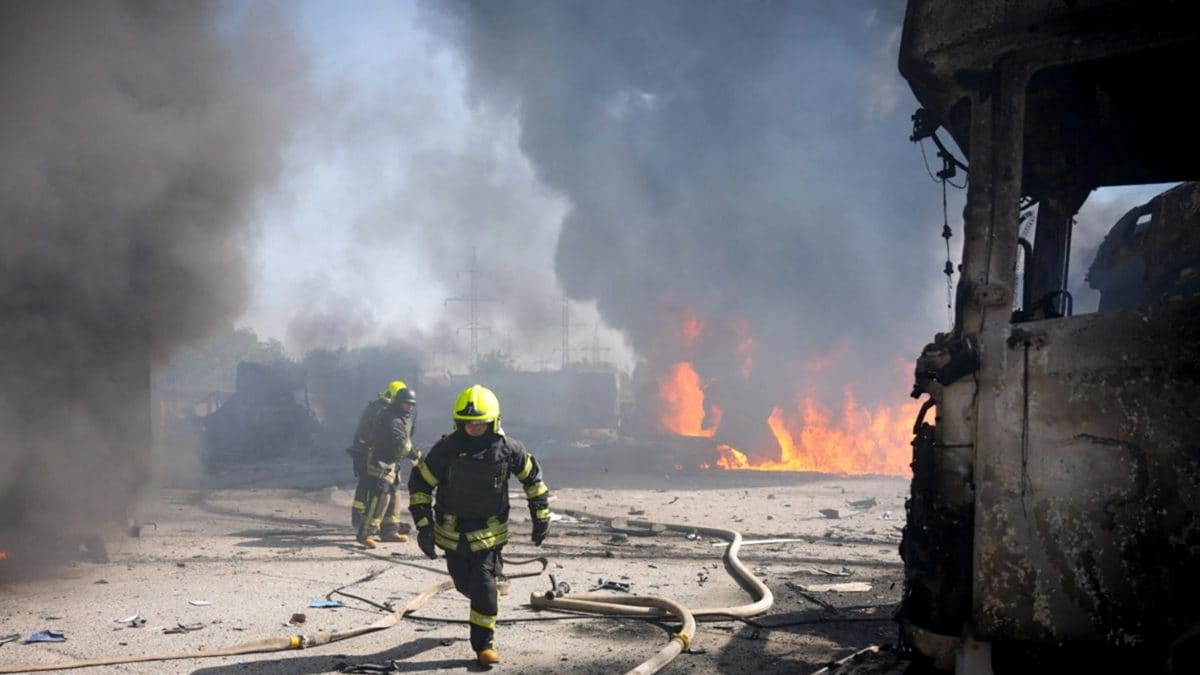The war in Ukraine has had a profound impact on Russia, not only on the battlefield but also on the country’s social fabric. A crackdown on dissent has intensified, leading to the prosecution of numerous individuals who criticize the government’s actions. One such individual is Sergei Mikhailov, a journalist and editor in Siberia, who was recently sentenced to eight years in prison for publishing critical information about the war. This case highlights the harsh realities of dissent suppression in Russia and the chilling effect it has on free speech and journalism.
The Prosecution of Sergei Mikhailov: A Case of Suppressed Dissent
Sergei Mikhailov’s arrest and subsequent sentencing represent a stark example of the Russian government’s increasing intolerance for criticism. Mikhailov, the editor of a small online opposition channel in Siberia, published posts about civilian casualties in Ukraine, including the Bucha massacre. His reporting contradicted the official Russian narrative, which often downplays or denies civilian casualties and portrays the Ukrainian government as “fascist”.
Mikhailov’s actions were seen as a direct challenge to the Kremlin’s control over information and the construction of a narrative that justifies the war. As a result, he was charged with “knowingly spreading fake information” about the Russian army, a crime that carries a significant prison sentence. The prosecution further alleged that Mikhailov was “motivated by political hatred”, highlighting the politicization of dissent and the suppression of opposing viewpoints.
The Impact on Free Speech and Journalism in Russia
The case of Sergei Mikhailov exemplifies the broader crackdown on freedom of expression in Russia. Since the start of the war in Ukraine, the Russian authorities have implemented a series of repressive laws aimed at silencing criticism of the military operation. These laws prohibit the dissemination of “fake news” about the Russian military and criminalize any actions considered to be undermining the authority of the state.
Journalists, bloggers, and ordinary citizens have been arrested, charged, and imprisoned for expressing their views or sharing information that contradicts the official narrative. The threat of prosecution has created a chilling effect, leading to self-censorship and a fear of speaking out. Independent media outlets have faced pressure, closures, and restrictions, further limiting the space for dissenting voices.
Consequences of the Crackdown
The consequences of this crackdown are far-reaching:
- Suppression of dissent: The clampdown on dissent has created a climate of fear and intimidation, discouraging open criticism of the government and the war.
- Erosion of trust in media: The relentless attacks on independent media and the propagation of government propaganda have eroded trust in reliable sources of information.
- Silencing of opposition voices: The arrests and imprisonments of journalists and activists have effectively silenced dissenting voices, diminishing the possibility of critical dialogue and debate.
A Challenge to International Standards
The Russian government’s actions represent a grave violation of international standards for freedom of expression and the right to information. The prosecution of Sergei Mikhailov and other individuals for expressing their views on the war in Ukraine highlights the government’s disregard for fundamental human rights.
The international community should condemn these actions and call for the immediate release of all individuals who have been imprisoned for exercising their right to free speech. The UN, the OSCE, and other international organizations must monitor the situation closely and hold the Russian government accountable for its human rights abuses.
A Sign of Things to Come?
The crackdown on dissent in Russia is not an isolated event. It reflects a broader trend towards authoritarianism and the suppression of fundamental rights, not only in Russia but also in other countries around the world.
The case of Sergei Mikhailov serves as a stark reminder of the dangers of silencing dissenting voices and the importance of defending the right to free speech and independent journalism.
Takeaway Points:
- Sergei Mikhailov’s sentencing showcases the severe consequences of criticizing the government’s war in Ukraine.
- The crackdown on dissent in Russia reflects the government’s efforts to control information and silence opposition.
- The chilling effect of this suppression has eroded trust in media, silenced dissenting voices, and violated international standards for free expression.
- The international community must condemn the crackdown on dissent and advocate for the protection of human rights and press freedom.
- This case raises alarm bells about the global trend toward authoritarianism and the importance of safeguarding democratic values and freedoms.









